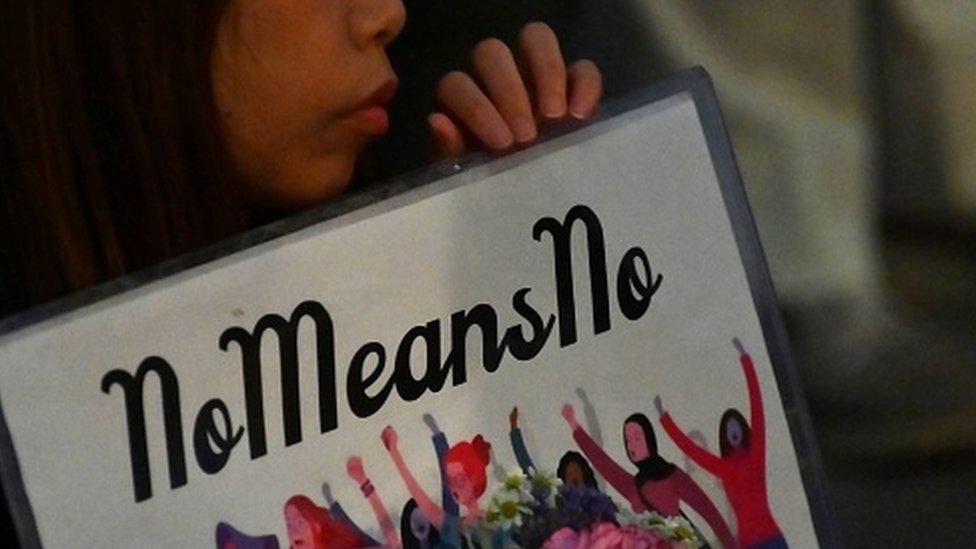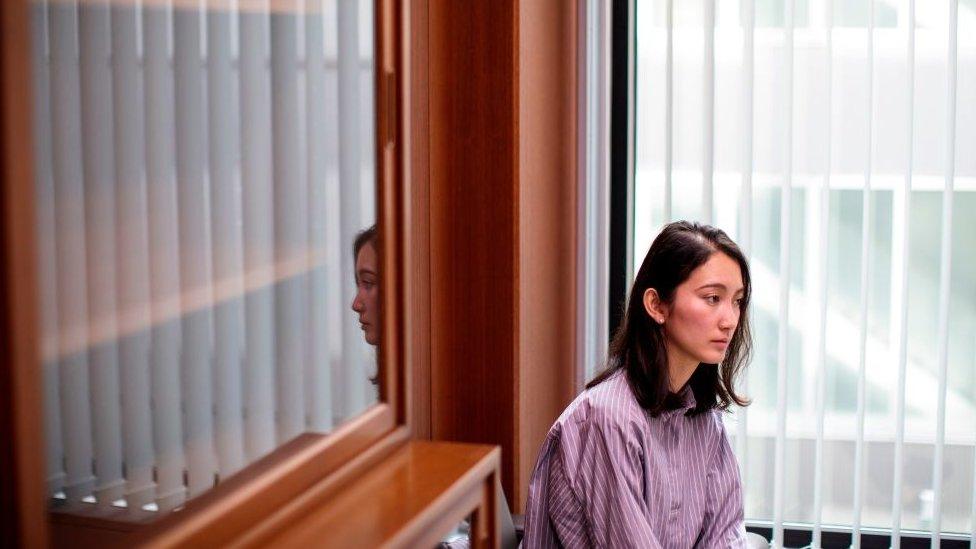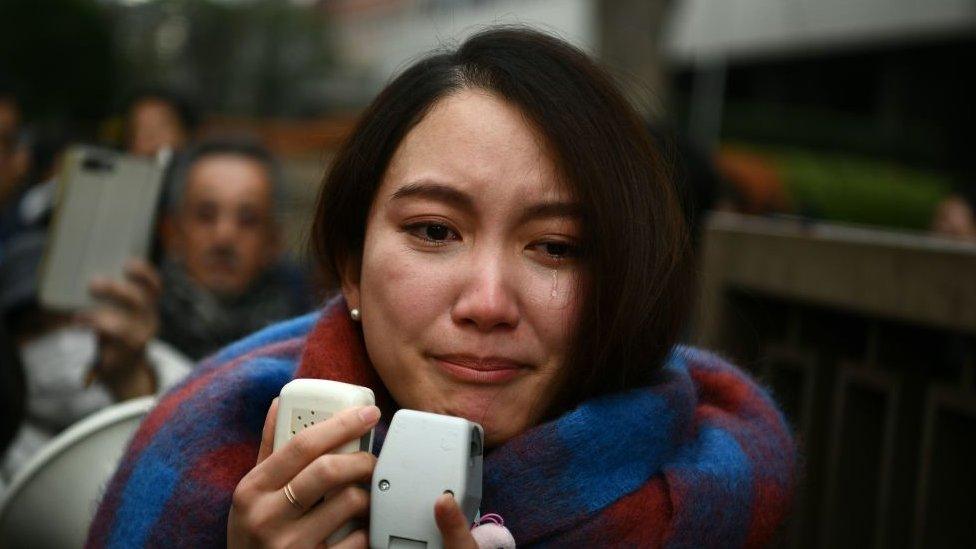Woman 'crushed' by Japan town vote after alleged sex assault by mayor
- Published

Shoko Arai's expulsion from office has been described as a setback for Japan's #MeToo movement
A former local councillor in Japan has spoken out against perceived sexism, after she was voted out of office in a town referendum after making sexual assault allegations against the mayor.
Shoko Arai was the only female councillor on the 12-member assembly in Kusatsu, a town northwest of Tokyo.
Last year she accused the mayor, Nobutada Kuroiwa, of sexually assaulting her in 2015.
He denied the allegations, branding them a political smear.
Ms Arai, 51, was expelled from the assembly last week. Her ejection was prompted by a public referendum over whether she had damaged the reputation of Kusatsu, home to about 6,200 people.
But in a news conference on Friday, Ms Arai said she stood by her allegations and would continue to fight for women's rights in Japan.
"We often in Japan hear the question of why the #Metoo movement has not gained further momentum," she said, referencing the campaign against sexual harassment and abuse.
"But this is because we know that, in such a male-dominated society, an atmosphere is created in which it is difficult for women in weaker positions to speak up.
"They are instead crushed. This is what was indeed the case for me."
The result of last week's referendum has attracted international media attention and drawn criticism from women's rights groups, which have described Ms Arai's removal as a setback for the #MeToo movement in Japan.
It is rare for women to go public with sexual assault and misconduct allegations in Japan.
A 2017 government survey showed that fewer than 4% of alleged sexual assault victims come forward, according to Spring, external, a sexual assault survivors' organisation in Japan.
How has the mayor responded?
The 73-year-old mayor responded to the allegations in a news conference of his own on Monday.
"I can declare that I have never laid a finger on Shoko Arai," Mr Kuroiwa said at the Foreign Correspondents' Club of Japan (FCCJ) in Tokyo on 14 December.
Mr Kuroiwa has filed a criminal complaint against Ms Arai and is seeking defamation damages in a civil suit.
The mayor said the fact that Ms Arai had not filed a complaint with police or launched a lawsuit proved her allegations were baseless.
Ms Arai has previously said she did not go to the police at the time of the alleged assault because she feared a backlash.

More on the #MeToo movement:
'Me Too movement not war against men'

The mayor raised the issue in the town's assembly after the allegations were first made public in an e-book last year.
Ms Arai's fellow councillors voted her out of office in December 2019, accusing her of making "scandalous" remarks.
Regional authorities overturned that decision, but Kusatsu's councillors gathered enough signatures to hold a public referendum on Ms Arai's removal.
In a decisive vote, 2,542 of the 2,835 residents who cast their ballots backed the view that Ms Arai should be recalled for "damaging the town's reputation".
What else did Ms Arai say in the news conference?
Ms Arai reiterated the allegations she made against Mayor Kuroiwa. She said the mayor had "branded my claims as lies" and had been "pressuring both me and my supporters with slander and false rumours".
"Does Mayor Kuroiwa want to use his power to exclude those who are inconvenient to him from the Kusatsu town assembly?," Ms Arai said.
She also addressed the low rate of female representation in Japan's politics.
"It is well known that there are very few female politicians in Japan," she said. "The very deep-rooted, condescension towards women is even more pronounced in assemblies with such a small number of women."
"I think the Kusatsu town assembly is symbolic of this," she added.
Related topics
- Published25 April 2018

- Published18 December 2019
